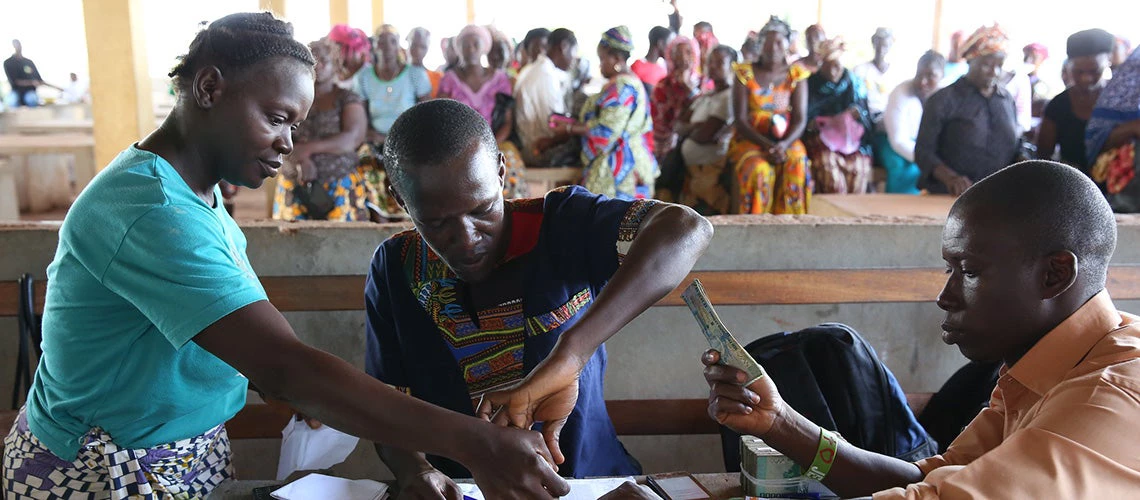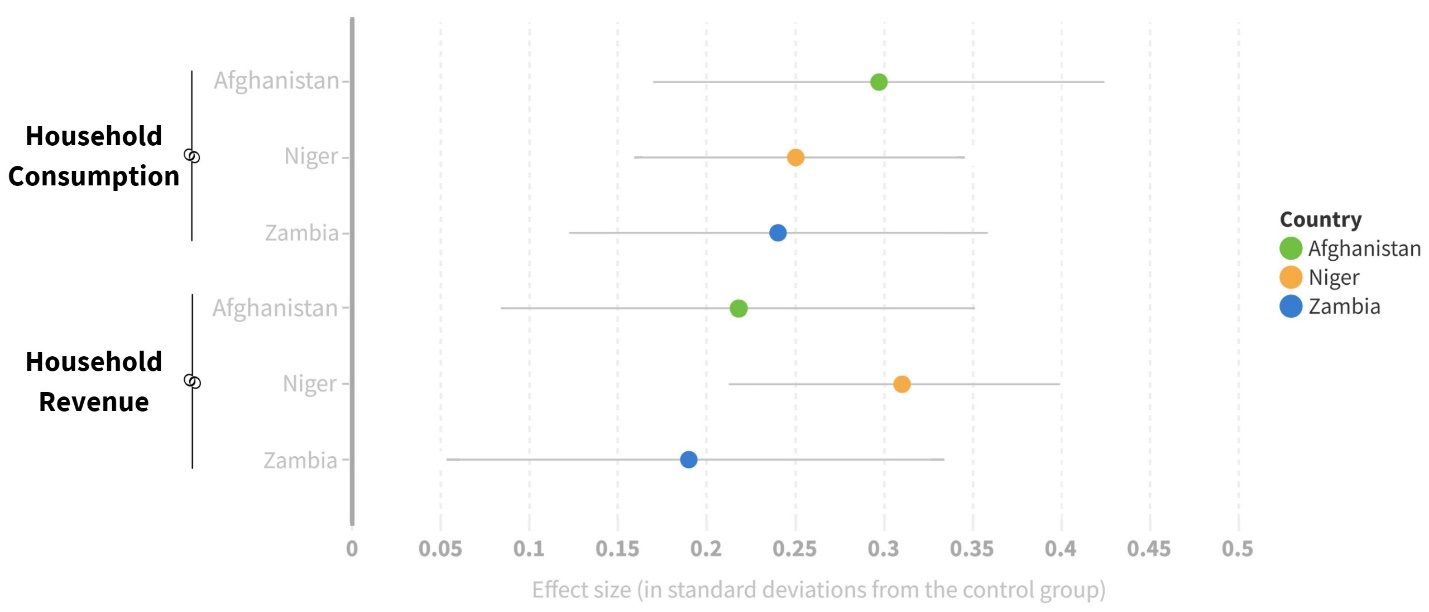 Photo: Dominic Chavez/World Bank
Photo: Dominic Chavez/World Bank
Economic inclusion programs are coordinated, multidimensional interventions that address multiple constraints for households to increase their incomes and assets. When done right, economic inclusion programs are effective. A growing body of evidence from pioneer NGO-led pilot programs across several countries, from Ghana to Ethiopia to Peru to Bangladesh, points to the effectiveness of multi-faceted interventions . We are witnessing a massive global surge in economic inclusion programming led by developing country governments. A new wave of evaluations of economic inclusion programs is also in the pipeline to unpack the opportunities and challenges in moving these interventions to scale. What do we need to learn to support the effective integration and scale-up of economic inclusion programs through government systems? The next few years will be critical to evaluate how much we can achieve with economic inclusion interventions implemented at scale for the poorest.
Emerging evidence from government-led programs is encouraging
Recent results from an evaluation of productive inclusion measures implemented through a national safety net program in Niger show remarkably large benefit-cost ratios, with strong impacts on consumption, income, as well as psychosocial well-being. Similarly, a recent evaluation in Zambia finds that a government-led economic inclusion program led to a significant higher consumption, income generating activities, subjective wellbeing, and food security. Impressive results from Afghanistan have also highlighted the feasibility of implementing multi-faceted interventions in fragile settings, their cost-effectiveness, and their potential to improve women’s empowerment.

This is encouraging, but we have much more to learn to effectively and efficiently scale-up government-led economic inclusion programs. The Partnership for Economic Inclusion (PEI) and World Bank’s Development Impact Evaluation Department (DIME), in consultation with various stakeholders and technical partners, have synthetized key policy-relevant learning priorities to orient joint efforts between researchers and economic inclusion program implementers moving forward.
Key learning priorities as economic inclusion programs move to scale
- There are institutional and implementation challenges in scaling up through government systems. Economic inclusion programs are multifaceted and can be challenging to deliver. Some programs at scale may not deliver as much impact as smaller-scale pilots because of lower intervention intensity, coordination issues or other implementation inefficiencies. Given these potential challenges, there is a clear need to establish strong data systems to track quality of service delivery, provide real-time monitoring data, incorporate beneficiaries’ feedback as well as systematize operational learning. Investments in monitoring systems and process learning can help provide a detailed picture on the efficiency of program delivery, which can complement and inform impact evidence on program effectiveness.
- There are critical learning gaps where additional impact evidence is needed on how to optimally design economic inclusion programs to achieve impacts and cost-effectiveness at scale
-
- Impact at Scale: What is the cost-effectiveness of large-scale government-led programs, and how does it compare to the cost-effectiveness of smaller-scale or NGO-led programs?
- Scalability: How do alternative delivery modalities that enhance scalability affect program impact and cost-effectiveness? For instance, can lower-cost and lower-intensity interventions (such as lighter group coaching, shorter training or trainings delivered digitally…) be as cost-effective as higher-cost and higher-intensity models?
-
Optimization: What is the minimum appropriate bundle for multi-faceted interventions to be effective in a given context? What is the marginal contribution of constituent interventions to overall impact and cost? Are some elements of the package better replaced by cash? What is the optimal bundle to maximize cost-effectiveness?
- As these interventions move to scale it is critical to assess potential synergies with policies in other sectors such as in agriculture, climate adaptation, resilience, skills, digitalization, or transport. Economic Inclusion programs are often integrated or provide linkages across many sectors, but it is not yet clear where the most effective complementarities lie. More systematic evidence generation is also required on operationalizing economic inclusion approaches across contexts, including in urban areas or fragile settings. It is also important to understand the how these approaches can affect and amplify resilience to shocks, climate adaptation, youth and women’s empowerment and agency.
The way forward: towards evidence-based scale-up
PEI in partnership with DIME and technical partners are launching an Impact Evaluation Collaborative on Moving Economic Inclusion to Scale with the goal of informing an evidence-based scale-up of economic inclusion programming. Over a four-year period, the collaborative will seek to support government programs to generate rigorous answers to several ongoing debates in economic inclusion programming and disseminate actionable recommendations to governments and partners planning to expand their economic inclusion programs or implement related innovations.
As part of this collaborative, between 6 and 10 government-led economic inclusion programs will be supported to design and implement robust impact evaluation by a mix of leading international experts, and promising local academics and young researchers. Impact studies will be supplemented with investments in monitoring systems and operational research to unpack the mechanisms of impact. Besides the supported evaluations, technical and capacity building events will be organized with technical partners, government practitioners, academics, funding partners, CSOs etc. Finally, this collaboration will deliver global knowledge products and tools to inform the evidence-based scale up of economic inclusion programs through government systems.
We hope that many of you will join in on the effort moving forward!
Join us for PEI Open House, on April 13 from 9:30am to 11am ET, to discuss a new wave of evidence from government-led programs in Niger, Senegal, and Zambia.



Join the Conversation